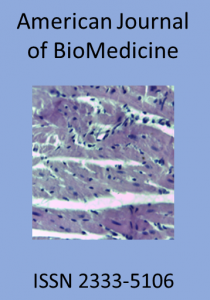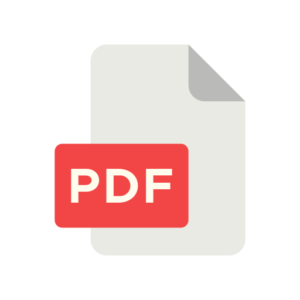Research Article
American Journal of BioMedicine
Volume 12, Issue 2, 2024, Pages 43-51 ![]() 10.18081/2333-5106/2024.12/43
10.18081/2333-5106/2024.12/43
Fathur Budiyono 1 ![]() , Achmad Firman
, Achmad Firman ![]() ,Ray Setiati
,Ray Setiati![]() , Erika Rah
, Erika Rah ![]() *
*![]()
Received 18 November 2023; revised 11 March 2024; accepted 19 March 2024; published 11 April 2024
Abstract
Acute lymphoblastic leukemia (ALL) is most common in children, especially those aged 1–4 years old, and the second most common acute leukemia in adults. The updated International Consensus Classification (ICC) of B-acute lymphoblastic leukemia (B-ALL) and T-acute lymphoblastic leukemia (T-ALL) includes recent clinical, cytogenetic, and molecular data. Transcriptome sequencing (RNA-seq) was performed on 200 bone marrow specimens using TruSeq library preparation and HiSeq 2000/2500 or NovaSeq 6000 sequencers (Illumina). The purpose of this study was to define the frequency of chromosomal abnormalities of ALL patients in adults and children in Indonesian patients after full remission for international collaboration has improved and advanced the diagnosis and treatment of ALL in Indonesia. Our resulting data showed that the most common structural abnormality was t(9;22) in 15% of the patients. The frequency of genetic abnormalities was 69 % and 60% for numerical and/or structural in the B-ALL and T-ALL patients, respectively. The adults had a higher incidence of t(9;22) and a lower incidence of hyperdiploid than children. In conclusion: The results of this study molecular subtypes differ strikingly in their responses to treatment that needs more assessment.
Keywords: Cytogenetic; Transcriptome sequencing; Acute lymphoblastic leukemia (ALL)
Copyright © 2024 Erika, et al. This article distributed under the Creative Commons Attribution License, which permits unrestricted use, distribution, and reproduction in any medium, provided the original work is properly cited.
Cited by CrossRef (1)
Cited by Scopus (0)
| 1. Pui CH, Robison LL, Look AT. Acute lymphoblastic leukaemia. Lancet (London, England). 2008;371(9617):1030-43. https://doi.org/10.1016/S0140-6736(08)60457-2 |
|||
| 2. Malard F, Mohty M. Acute lymphoblastic leukaemia. The Lancet. 2020;395(10230):1146-62. https://doi.org/10.1016/S0140-6736(19)33018-1 |
|||
| 3. Fielding AK, Richards SM, Chopra R, et al. Outcome of 609 adults after relapse of acute lymphoblastic leukemia (ALL); an MRC UKALL12/ECOG 2993 study. Blood 2007; 109: 944-950. https://doi.org/10.1182/blood-2006-05-018192 |
|||
| 4. Mostert S, Sitaresmi MN, Gundy CM, Sutaryo, Veerman AJ. Influence of socioeconomic status on childhood acute lymphoblastic leukemia treatment in Indonesia. Pediatrics. 2006;118(6):e1600-6. https://doi.org/10.1542/peds.2005-3015 |
|||
| 5. Tavernier E, Boiron JM, Huguet F, et al. Outcome of treatment after first relapse in adults with acute lymphoblastic leukemia initially treated by the LALA-94 trial. Leukemia 2007; 21: 1907-1914. https://doi.org/10.1038/sj.leu.2404824 |
|||
| 6. Perdana A, Saputra F, Aisyi M. Update on Diagnosis of Childhood Acute Lymphoblastic Leukemia (ALL) in Indonesia. Indonesian Journal of Cancer. 2020;14(4):115-6. https://doi.org/10.33371/ijoc.v14i4.818 |
|||
| 7. Jain N, Lamb AV, O'Brien S, et al. Early T-cell precursor acute lymphoblastic leukemia/lymphoma (ETP-ALL/LBL) in adolescents and adults: a high-risk subtype. Blood 2016; 127: 1863-1869. https://doi.org/10.1182/blood-2015-08-661702 |
|||
| 8. Maude SL, Barrett D, Teachey DT, Grupp. SA. Managing Cytokine Release Syndrome Associated With Novel T Cell-Engaging Therapies. Cancer J 2014; 20: 119-122. https://doi.org/10.1097/PPO.0000000000000035 |
|||
| 9. Page MJ, McKenzie JE, Bossuyt PM, et al. The PRISMA 2020 statement: an updated guideline for reporting systematic reviews. Systematic Reviews. 2021;10(1):89. https://doi.org/10.1186/s13643-021-01626-4 |
|||
| 10. Barrett DM, Liu X, Jiang S, June CH, Grupp SA, Zhao Y. Regimen-specific effects of RNA-modified chimeric antigen receptor T cells in mice with advanced leukemia. Hum Gene Ther 2013; 24: 717-727. https://doi.org/10.1089/hum.2013.075 |
|||
| 11. Dai H, Wang Y, Lu X, Han W. Chimeric Antigen Receptors Modified T-Cells for Cancer Therapy. Natl Cancer Inst 2016; 108: pii djv439. https://doi.org/10.1093/jnci/djv439 |
|||
| 12. Benton CB, Thomas DA, Yang H, et al. Safety and clinical activity of 5-aza-2'-deoxycytidine (decitabine) with or without Hyper-CVAD in relapsed/refractory acute lymphocytic leukaemia. Br J Haematol 2014; 167: 356-365. https://doi.org/10.1111/bjh.13050 |
|||
| 13. Nordlund J, Backlin CL, Zachariadis V, et al. DNA methylation-based subtype prediction for pediatric acute lymphoblastic leukemia. Clin Epigenetics 2015; 7: 11. https://doi.org/10.1186/s13148-014-0039-z |
|||
| 14. Duval S, Tweedie R. A simple funnel-plot-based method of testing and adjusting for publication bias in meta-analysis. Biometrics. 2000;56(2):455-63. https://doi.org/10.1111/j.0006-341X.2000.00455.x |
|||
| 15. Maude SL, Tasian SK, Vincent T, et al. Targeting JAK1/2 and mTOR in murine xenograft models of Ph-like acute lymphoblastic leukemia. Blood 2012; 120: 3510-3518. https://doi.org/10.1182/blood-2012-03-415448 |
|||
| 16. Horton TM, Gannavarapu A, Blaney SM, et al. Bortezomib interactions with chemotherapy agents in acute leukemia in vitro. Cancer Chemother Pharmacol 2006; 58: 13-23. https://doi.org/10.1007/s00280-005-0135-z |
|||
| 17. Widyapuri G, Gatot D, Pulungan A, Hegar B. Effect of glucocorticoid therapy on adrenal function in children with acute lymphoblastic leukemia. Paediatrica Indonesiana. 2014;54(1):15-21. https://doi.org/10.14238/pi54.1.2014.15-21 |
|||
| 18. Borenstein M, Higgins JP, Hedges LV, Rothstein HR. Basics of meta-analysis: I(2) is not an absolute measure of heterogeneity. Research synthesis methods. 2017;8(1):5-18. https://doi.org/10.1002/jrsm.1230 |
|||
| 19. McClure BJ, Pal M, Heatley SL, et al. Two novel cases of NUTM1-rearranged B-cell acute lymphoblastic leukaemia presenting with high-risk features. Br J Haematol. 2022;196:1407-1411. https://doi.org/10.1111/bjh.17995 |
|||
| 20. Chiaretti S, Messina M, Foà R (2019) BCR/ABL1-like acute lymphoblastic leukemia: How to diagnose and treat? Cancer. 2019;125:194-204. https://doi.org/10.1002/cncr.31848 |
|||
| 21. Iacobucci I, Kimura S, Mullighan CG. Biologic and Therapeutic Implications of Genomic Alterations in Acute Lymphoblastic Leukemia. J Clin Med. 2021;10:3792. https://doi.org/10.3390/jcm10173792 |
|||
| 22. Nasr MR, Rosenthal N, Syrbu S. Expression profiling of transcription factors in B- or T-acute lymphoblastic leukemia/lymphoma and burkitt lymphoma: usefulness of PAX5 immunostaining as pan-Pre-B-cell marker. Am J Clin Pathol. 2010;133:41-48. https://doi.org/10.1309/AJCPYP00JNUFWCCY |
|||
| 23. Jevremovic D, Roden AC, Ketterling RP, et al. LMO2 Is a Specific Marker of T-Lymphoblastic Leukemia/Lymphoma. Am J Clin Pathol. 2016;145:180-190. https://doi.org/10.1093/ajcp/aqv024 |
|||
| 24. Iacobucci I, Kimura S, Mullighan CG. Biologic and Therapeutic Implications of Genomic Alterations in Acute Lymphoblastic Leukemia. J Clin Med. 2021;10:3792. https://doi.org/10.3390/jcm10173792 |
|||
| 25. Di Giacomo D, La Starza R, Gorello P, et al. 14q32 rearrangements deregulating BCL11B mark a distinct subgroup of T-lymphoid and myeloid immature acute leukemia. Blood. 2021;138:773-784. https://doi.org/10.1182/blood.2020010510 |
|||
| 26. Zaliova M, Stuchly J, Winkowska L, et al. Genomic landscape of pediatric B-other acute lymphoblastic leukemia in a consecutive European cohort. Haematologica. 2019;104:1396-1406. https://doi.org/10.3324/haematol.2018.204974 |
|||
| 27. Passet M, Boissel N, Sigaux F, et al. PAX5 P80R mutation identifies a novel subtype of B-cell precursor acute lymphoblastic leukemia with favorable outcome. Blood. 2019;133:280-284. https://doi.org/10.1182/blood-2018-10-882142 |
|||
| 28. Leonard J, Wolf JS, Degnin M, et al. Aurora A kinase as a target for therapy in TCF3-HLF rearranged acute lymphoblastic leukemia. Haematologica. 2021;106:2990-2994. https://doi.org/10.3324/haematol.2021.278692 |
|||
| 29. Pincez T, Landry J-R, Roussy M, et al. Cryptic recurrent ACIN1-NUTM1 fusions in non-KMT2A-rearranged infant acute lymphoblastic leukemia. Genes Chromosomes Cancer. 2020;59:125-130. https://doi.org/10.1002/gcc.22808 |
|||
| 30. Bhavsar S, Liu Y-C, Gibson SE, et al. Mutational Landscape of TdT+ Large B-cell Lymphomas Supports Their Distinction From B-lymphoblastic Neoplasms: A Multiparameter Study of a Rare and Aggressive Entity. Am J Surg Pathol. 2022;46:71-82. https://doi.org/10.1097/PAS.0000000000001750 |
How to cite
Budiyono F, Firman A, Setiati R, Rah E. Investigates the genetic types of acute lymphoblastic leukemia in full remission Indonesian patients: a cross-sectional analysis. American Journal of BioMedicine 2024; 12(2):43-51.
More citation
Article Metrics
Permissions
This work is licensed under a Creative Commons Attribution-NonCommercial 4.0 International License.
All articles published in American Journal of BioMedicine are licensed under Copyright Creative Commons Attribution-NonCommercial 4.0 International License.



